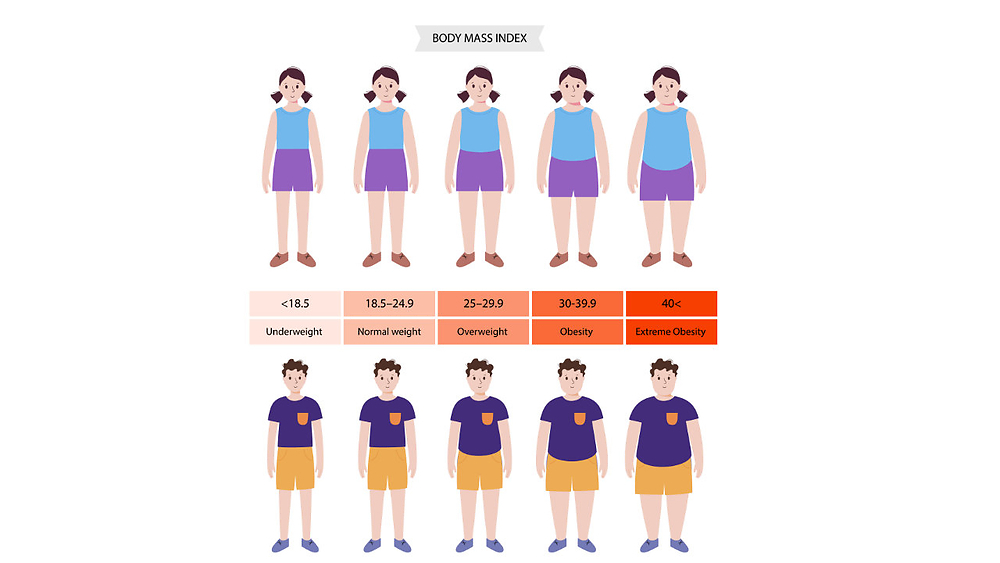November 17, 2022 | Press Release
USA: Being Obese in Early Adulthood Increases the Chance of Remaining Childless at 40 and beyond

© iStockphoto.com/Pikovit44
A team of researchers used longitudinal survey data from the late 1950s US birth cohort to show how sex and ethnicity relate to how weight (BMI) during early adulthood predicts later childlessness. The study was recently published in the journal “Population Studies”.
Two of the major trends in contemporary populations are the increasing prevalence of having children later in life or not at all, and growing health disparities among young adults. “However, less is known about the extent to which the pathways linking early Body Mass Index (BMI) to lifetime childlessness differ by ethnicity, a major axis by which disparities develop in terms of both BMI and childbearing,” says D. Susie Lee, Researcher at the Max Planck Institute for Demographic Research (MPIDR) in Rostock, Germany.
Being obese during early adulthood is associated with a higher chance of remaining childless at age 40 and beyond. This finding in the United States is consistent across all three ethnic groups studied: Blacks, Hispanics, and whites, and with both sexes. However, obesity affects women’s likelihood of remaining childless more than that of men.
Another difference by ethnicity was also seen – differences which are more pronounced among women. For Black women, being underweight was associated with a lower chance of remaining childless later in life. That means Black women who were underweight as teenagers have a higher chance of becoming a mother than Black women within the healthy range of BMI. This observation is contrary to what would be expected under the ‘buffering’ hypothesis which states that the sociocultural pressure to conform to a slender body type is not seen, or is seen to a lesser degree, in ethnic minorities. The study’s finding suggests that norms around slender body type may affect ethnic minorities, too.
Recent Birth Cohorts’ BMI Might Influence Childlessness Differently
The researchers used data from the US National Longitudinal Survey (NLSY79) cohort. The data is from a longitudinal project that follows the lives of the 12,686 young men and women born in the US between 1957 and 1964 – the younger end of the baby boom generation. The survey started in 1979, when the participants were between 14 and 22 years old, was repeated annually until 1994, and has been run biennially since, with the most recent survey conducted in 2018.
“We sought to overcome one limitation in the NLSY79 data – pre-parental BMI is not included for those who became parents at a very early age. We were able to statistically estimate this missing information based on other factors known to predict it (BMI) and made it (the new data on BMI) publicly available for future studies to examine mechanisms behind our findings,” says D. Susie Lee about the reproducibility of the paper.
It remains to be seen whether the findings from the NLSY79 Cohort are extended to more recent US cohorts or to other countries where trends in childlessness and BMI are both rapidly changing. “The prevalence of obesity is increasing globally, and so are existing norms around body image and their role in family formation process. We need more studies across countries and in more recent birth cohorts, to better understand 'how' the health conditions during early life -such as BMI- have long term consequences in fertlity”, says D. Susie Lee.
Original Publication
Lee, D.S., Nitsche, N., Barclay, K.: Body mass index in early adulthood and transition to first birth: Racial/ethnic and sex differences in the United States NLSY79 Cohort. Population Studies (2022). DOI: 10.1080/00324728.2022.2128396
Authors and Affiliations
D. Susie Lee, Max Planck Institute for Demographic Research, Rostock
Natalie Nitsche, Max Planck Institute for Demographic Research, Rostock
Kieron Barclay, Stockholm University